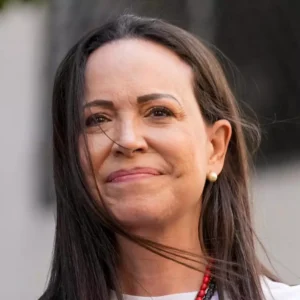As the U.S. government shutdown enters its seventh day, Democrats are digging in on health care subsidies, arguing the issue resonates with a majority of Americans and should be part of any deal to reopen federal agencies.
The demand centers on extending the Affordable Care Act (ACA) premium subsidies—introduced in 2021 to cushion costs during the pandemic—before millions of Americans face higher insurance bills in January.
Republicans, however, remain divided. Some favor extending the subsidies with reforms, while others view the debate as a fresh opportunity to scale back what they still call “Obamacare.”
“If Republicans govern by poll and fail to grab this moment, they will own it,” Rep. Chip Roy (R-TX) wrote in a Wall Street Journal letter. “The jig is up—the pandemic is over.”
Republicans Split Over Strategy
While Republicans have long sought to dismantle the ACA, the party now faces internal divisions as 24 million Americans depend on subsidized coverage.
President Donald Trump, who earlier hinted at ongoing negotiations, later reversed course, saying he would only discuss health care once Democrats voted to reopen the government.
“I am happy to work with Democrats on their Failed Healthcare Policies, or anything else, but first they must allow our Government to reopen,” Trump wrote on social media.
Senate Majority Leader John Thune (R-SD) said there “may be a path forward” on ACA subsidies—but only after government operations resume. He emphasized that the final decision likely hinges on the White House’s stance.
“The whole problem with all of this is Obamacare,” said Sen. Rick Scott (R-FL).
House Speaker Mike Johnson echoed the sentiment on NBC’s Meet the Press, stating, “Obamacare is not working. We’re trying to fix it.”

Democrats Press on Public Support
Senate Majority Leader Chuck Schumer (D-NY) countered that public sentiment clearly supports Democrats’ approach, citing polls showing most Americans blame Republicans for the shutdown.
“The American people feel deeply about solving this health care crisis,” Schumer said. “Every poll shows they want us to do it—and they believe Republicans are far more responsible for this shutdown.”
With federal workers going unpaid and pressure mounting, Democrats argue that ACA beneficiaries—many in Republican-leaning states—will soon face premium hikes, intensifying political fallout.
Sulfur Dioxide Pollution Linked to Higher ALS Risk, Study Finds
Bipartisan Talks Hit a Wall
Behind the scenes, a handful of senators from both parties are quietly discussing possible compromises.
Sen. Mike Rounds (R-SD) has proposed extending the subsidies for one year, followed by a gradual phase-out. Sen. Susan Collins (R-ME) suggested advancing pending spending bills alongside a commitment to debate the ACA later.
But Democrats say a promise isn’t enough. “We need more than vague commitments,” said Sen. Angus King (I-ME), warning he could switch his vote if Republicans don’t show “real evidence” of engagement on health care.
Others, like Sen. Markwayne Mullin (R-OK), insist the government must reopen first. “We’re not budging,” Mullin said.
Growing Republican Concern
Despite party resistance, some Republicans are shifting under constituent pressure. Sen. Josh Hawley (R-MO) acknowledged the issue’s urgency, saying, “We have to do something—sooner rather than later—before open enrollment begins November 1.”
Even conservative firebrand Rep. Marjorie Taylor Greene (R-GA) suggested she might back an extension.
“When these tax credits expire, my own adult children’s premiums will double,” Greene wrote. “So will the costs for hard-working families in my district.”
Her comments underscore the political risk facing Republicans if subsidies lapse during the shutdown.
Outlook: Prolonged Standoff Likely
With both sides entrenched, a swift compromise appears unlikely. Democrats are leveraging the health care subsidies to pressure Republicans back to the table, while the GOP insists the government must reopen first.
Analysts warn that the longer the shutdown continues, the greater the economic and political fallout—especially as open enrollment season looms and millions of Americans brace for higher premiums.
For now, the impasse persists, with neither side showing signs of backing down.
Sources:






